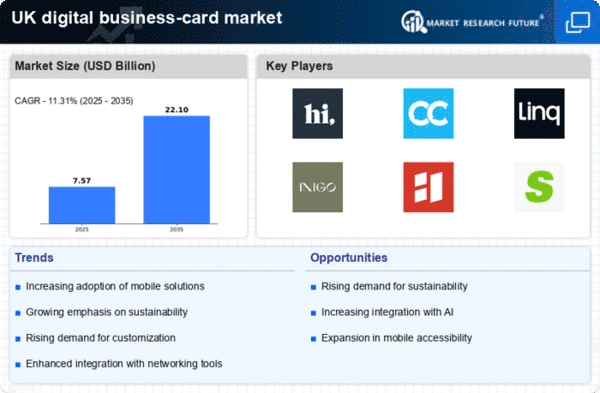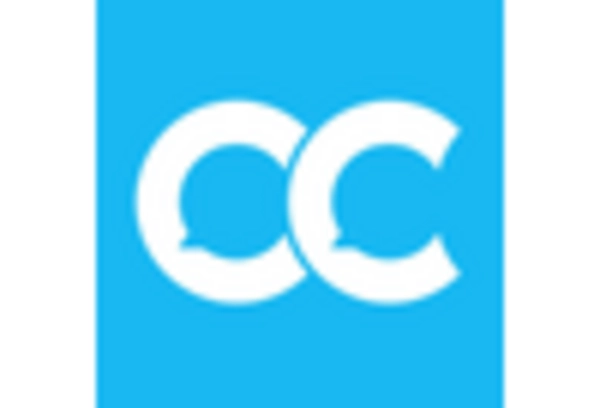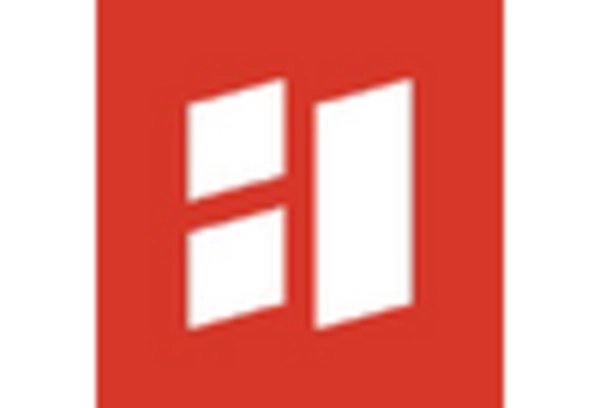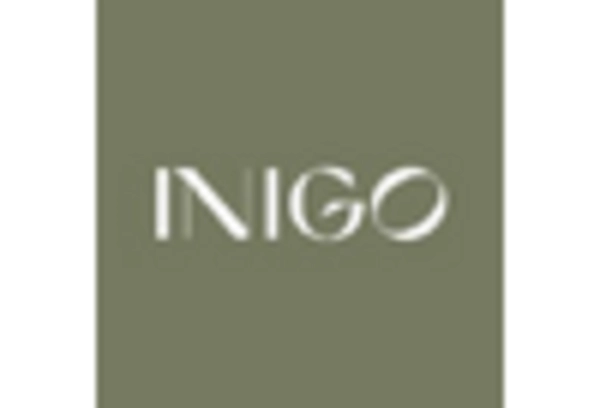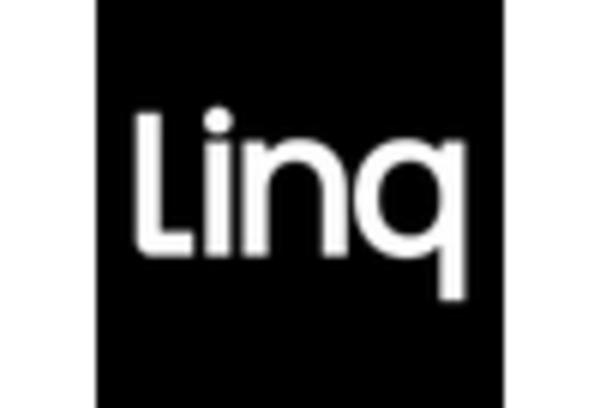The digital business-card market is currently characterized by a dynamic competitive landscape, driven by technological advancements and evolving consumer preferences. Key players such as HiHello (US), Linq (US), and CamCard (CN) are actively shaping the market through innovative solutions and strategic partnerships. HiHello (US) has positioned itself as a leader in user-friendly digital solutions, focusing on seamless integration with existing contact management systems. Meanwhile, Linq (US) emphasizes customization and user engagement, appealing to a diverse clientele. CamCard (CN), with its strong foothold in Asia, leverages its extensive database to enhance networking capabilities, thereby influencing the competitive environment significantly.
The market structure appears moderately fragmented, with several players vying for market share. Key business tactics include localizing services to cater to regional preferences and optimizing supply chains for efficiency. This fragmentation allows for a variety of offerings, yet the collective influence of major players like HiHello (US) and Linq (US) is notable, as they set trends that smaller companies often follow.
In October 2025, HiHello (US) announced a strategic partnership with a leading CRM provider, enhancing its platform's capabilities. This collaboration is likely to streamline user experiences, allowing for better integration of digital business cards into broader networking strategies. Such moves not only bolster HiHello's market position but also reflect a growing trend towards interoperability in digital solutions.
In September 2025, Linq (US) launched a new feature that allows users to create interactive QR codes linked to their digital business cards. This innovation is significant as it enhances user engagement and facilitates easier sharing of contact information, potentially increasing Linq's user base. The introduction of such features indicates a shift towards more interactive and engaging digital solutions in the market.
In August 2025, CamCard (CN) expanded its services into the European market, aiming to capture a larger share of the growing demand for digital networking tools. This expansion is strategically important as it not only diversifies CamCard's market presence but also positions it to compete more effectively against established players in the UK and beyond.
As of November 2025, current trends in the digital business-card market include a strong emphasis on digitalization, sustainability, and AI integration. Strategic alliances are increasingly shaping the competitive landscape, as companies recognize the value of collaboration in enhancing their offerings. Looking ahead, competitive differentiation is likely to evolve, with a shift from price-based competition to a focus on innovation, technology, and supply chain reliability. This evolution suggests that companies will need to invest in cutting-edge solutions to maintain their competitive edge.


